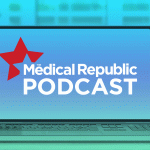GPs can now privately bill telehealth consultations after another change to Medicare rules but bulk billing is still necessary for concessional, young and vulnerable people
GPs can now privately bill telehealth consultations after another change to Medicare rules.
In a webinar update for GPs today, Deputy Chief Medical Officer Professor Michael Kidd said patients with concession cards, those under 16 and those who were especially vulnerable to COVID-19 would still have to be bulk-billed.
The vulnerable patients are those who are pregnant or have small babies, who have a chronic disease or are immunocompromised, or are over 70 or Indigenous and over 50.
The bulk-billing incentive would be doubled for concessions and under-16s.
He asked GPs to take individual patients’ circumstances into consideration when they chose not to bulk-bill: “The government is very keen to ensure all people of Australia can still afford to have access to the high-quality services that they need through general practice,” he said.
He noted that the ability to provide a face-to-face appointment if necessary was a condition of claiming telehealth on Medicare.
Health Department Deputy Secretary Penny Shakespeare said while definitions of chronic disease were available on the DoH website or MBSonline.gov.au, it was a matter of clinician’s judgment as to whether a patient met that description.
Ms Shakespeare said guidance would be coming on which videoconferencing platforms to use, since the free kind were not recommended due to security concerns.

Professor Kidd said more PPE was being distributed through the PHNs, and said GPs who did not receive more masks this week before Easter should contact the department.
Dr Jenny Firman, Chief Health Officer in the Department of Veterans’ Affairs, acknowledged there had been “difficulties and shortages”, but said further supplies of PPE including 10 million masks were being added to the National Medical Stockpile and 2.5 million were being distributed through PHNs.
A further half-billion surgical masks and 85 million P2 masks and other items were on their way and 200 million masks were to be manufactured on shore “by the end of the year”.
At this point it was not recommended to disinfect and reuse masks, but infection control experts were assessing whether that might be a solution to shortages, she said.
Professor Kidd drew attention to the new online resources as the “go to” for the best evidence on clinical management.
On the controversy around serology testing, which WA has banned GPs from using, Dr Firman said these tests were not indicated for diagnosis and were still being validated and assessed for when they might be most useful.
Professor Kidd said there had been worrying reports of examples of racism, especially against Aboriginal and Torres Strait Islander patients, and urged GPs to “Please make sure your staff know discrimination is not tolerated in your workplaces and that all our patients are treated with respect”.
There had also been reports of public attacks on healthcare workers, he said, urging them to stay as safe as possible.
With some complaining of a shortage of flu shots, he said there was plenty of vaccine in the country but acknowledged that distribution had been “patchy”.
“Supplies are rolling out so please keep contacting your supplier,” he said.
Professor Kidd told GPs to take care of themselves as well as their communities and practices.
He said the government was “continuing to look at what needs to be done to ensure the viability of general practice … it is a government imperative to make sure that as we … look beyond the pandemic that we still have the services that people need and deserve”.
Ms Shakespeare said changes might continue to be made to Medicare rules as the situation unfolded.








